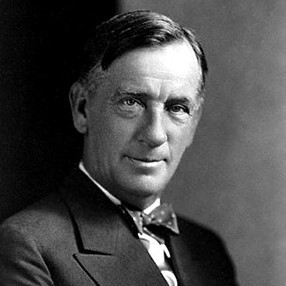A boy and his dad on a fishing-trip—
There is a glorious fellowship!
Father and son and the open sky
And the white clouds lazily drifting by,
And the laughing stream as it runs along
With the clicking reel like a martial song,
And the father teaching the youngster gay
How to land a fish in the sportsman's way.
I fancy I hear them talking there
In an open boat, and the speech is fair.
And the boy is learning the ways of men
From the finest man in his youthful ken.
Kings, to the youngster, cannot compare
With the gentle father who's with him there.
And the greatest mind of the human race
Not for one minute could take his place.
Which is happier, man or boy?
The soul of the father is steeped in joy,
For he's finding out, to his heart's delight,
That his son is fit for the future fight.
He is learning the glorious depths of him,
And the thoughts he thinks and his every whim;
And he shall discover, when night comes on,
How close he has grown to his little son.
A boy and his dad on a fishing-trip—
Builders of life's companionship!
Oh, I envy them, as I see them there
Under the sky in the open air,
For out of the old, old long-ago
Come the summer days that I used to know,
When I learned life's truths from my father's lips
As I shared the joy of his fishing-trips.
Published:
None
Length:
Regular
Literary Movements:
Modernism
Anthology Years:
2024
Themes:
Family
Memory & The Past
Literary Devices:
End Rhyme
when a poem has lines ending with words that sound the same
Rhetorical Question
a question asked for effect, not necessarily to be answered
Rhyme
correspondence of sound between words or the endings of words, especially when these are used at the ends of lines of poetry
Simile
a comparison between two unlike things using the words “like” or “as”

